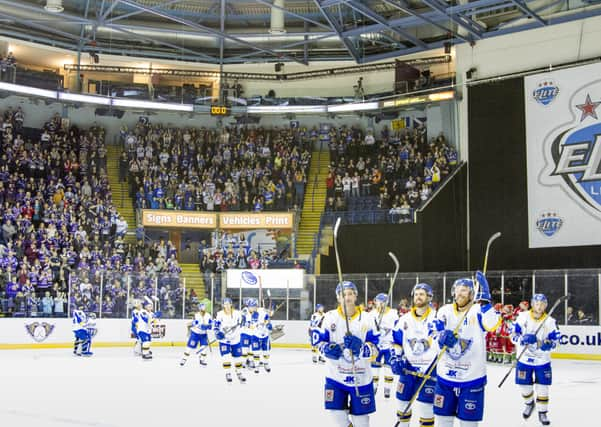Opinion: Why it might be a long way back for ice hockey...


There was a sobering article published by Sports Illustrated on attempts to re-start big time sport in North America. The bottom line was surely a wake-up call to every league in every country.
When society does return to normal, events which attract large crowds - which depend upon them for revenue and atmosphere - will be at the very tail of a very long queue.
Advertisement
Hide AdAdvertisement
Hide AdAs long as there is social distancing, the doors to any new season cannot re-open, and, even when they do, we may have to make radical adjustments.
There has to be an orderly return to everyday life, and places where people congregate – bars, restaurants, arenas, concert halls – may have to adapt to very different operating models, possibly forever.
It’s now mid-April. The 2019-20 ice hockey season should just have finished on a high with the play-off finals weekend in Nottingham. The rumour mill should be flowing like a waterfall. Instead it’s barely a trickle of gossip.
The early curtailment of the league season already feels like a lifetime ago – and next season might as well be a dot on the horizon right now.
Advertisement
Hide AdAdvertisement
Hide AdGlasgow Clan have parted company with coach Zack Fitzgerald, and Manchester Storm have confirmed the return of skater, Tyson Fawcett, presumably a deal done before the end of the season and pencilled in as a post-finals weekend announcement to get the ball rolling before coronavirus changed everything.
In terms of hockey news, that’s pretty much it so far. It’s hard to see a rush of signings any time soon.
Be honest, what exactly are they signing up for? Will their team even be around when the puck drops?
Will the EIHL of 2020-21 be recognisable?
Will the lure of travelling, playing and living thousands of miles from home still seem like such a great idea?
Advertisement
Hide AdAdvertisement
Hide AdIce hockey’s hopes of a September re-start look like a long shot right now, and when it does return – let’s hold on to that positive thought – it may be in truncated fashion.
Unlike football, ice hockey does have the ability to contract.
Its post-season play-offs could become the focal point of excitement and interest, wrapping up a condensed league competition.
And, if the season is shortened, then binning the Challenge Cup wouldn’t cause many fans, or players, sleepless nights. No-one will miss the ‘thrill’ of the play-in play-off - the league’s daftest idea to date – or its long, tedious time span.
Advertisement
Hide AdAdvertisement
Hide AdRight now, the league – along with every other pro sport across the UK – is simply staring into a void.
Getting agreement on what happens next is going to be a real test of the unity of purpose of the member clubs - hockey’s track record of putting self interest first has to be completely dismantled, and a whole new ethos discovered and cemented at the heart of its operations.
The league may even have to come up with several business plans based on seasons of different length and structure in order just to get started, and it may have to be prepared for further disruption if this pandemic returns.
And the EIHL needs to somehow get all ten teams through a summer with next to no income, and with no idea of how the pandemic will impact on the world of corporate sponsorship going forward.
Advertisement
Hide AdAdvertisement
Hide Ad“We will not have sporting events with fans until we have a vaccine” was the stark message from one scientist in the Sports Illustrated article.
That could be 12-18 months away. If that timescale becomes reality then sport, as we know it, is dead in the water.
Ice hockey’s boom and bust history has contained some real lows, but they would be nothing compared with the new reality which, potentially, lies ahead.
At a time when almost 1000 people are dying every 24 hours in the UK, that may well be of little concern, but, the passions that ignite us, the ties that bring us to rinks and arenas, the rituals of game night are all part of our daily lives.
Sport is part of the fabric of our communities.
Protecting it – and all the good it brings – is just one of the many enormous challenges which lies ahead.